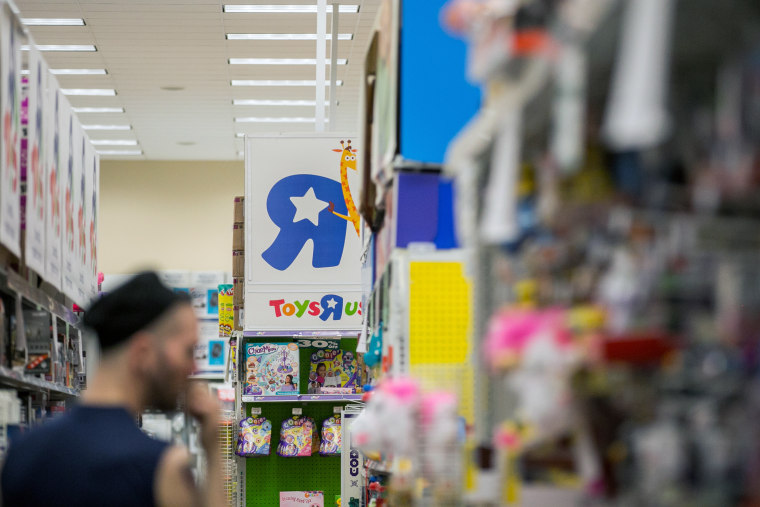This holiday season, some people will once again be able to shop in a Toys R Us store.
The retailer will open two permanent stores in November — at Simon Property Group’s Galleria mall in Houston and at Unibail-Rodamco-Westfield’s Garden State Plaza mall in Paramus, New Jersey.
The stores are the product of a joint venture between software retailer b8ta and Tru Kids, the company that is helping to manage the brand names left in the wake of the Toys R Us liquidation last year.
After the company shuttered its 800 U.S. stores, lenders including Solus Alternative Asset Management and the Angelo Gordon investment firm took control of the company’s Toys R Us, Babies R Us and Geoffrey brand names.
The revived Toys R Us brand is hoping to avoid past wrongs. Critics have pointed to several factors that led to the Toys R Us downfall: crippling debt load, competition from Amazon, overconfidence, failure to invest in stores, and the rise of big-box retailers like Walmart that slashed toy prices to help lure shoppers.
Toys R Us, like many retailers, struggled to revamp its enormous business as quickly as the retail landscape was changing around it.
“I don’t think there’s many times where you can take such a great storied brand as Toys R Us and get a chance to repaint the canvas,” said Richard Barry, president of Tru Kids and the former chief merchandising officer of Toys R Us.
The company hopes to open 10 stores around the U.S. in 2020, possibly including a larger flagship in New York or California. The new stores will be smaller, spanning 6,500 to 10,000 square feet, compared with the 40,000 they used to occupy.
“While we have a smaller footprint, we believe we will present a super exciting set of experiences in the store and products,” said Barry.
B8ta, which has more than a dozen of its own stores in malls around the country, including the new Hudson Yards in New York, will help take care of those experiences. Its in-house technology platform, which is also powering pop-up marketplaces within some Macy’s stores, will work with the toy brands to help them create their own mini shops within the spaces. B8ta also says it will contribute its retail as a service platform to help those brands simultaneously grow online sales.
Toys R Us infamously relaunched its website during its crucial — and ultimately failed — 2017 holiday season in bankruptcy that subsequently forced its liquidation.
B8ta will also be giving Tru Kids access to data and analytics to track things like foot traffic in and out of the stores to allow the company to make smarter decisions, according to Phillip Raub, b8ta co-founder and president. “This year is going to be an opportunity for us to test and learn.”
The partnership with b8ta gives Tru Kids a negotiating tool as it tries to woo back brands to sell in its stores. Part of what made Toys R Us unique was its access to the best and sometimes exclusive products. But the relationship between toy brands and the retailer was frayed in its liquidation, which led to companies big and small losing money in the process.
Barry said talks with toy and entertainment companies have been “very positive.”
He added the brands are giving the company “credit for innovation,” and they like getting a chance to control their own brand experience in the stores.
The new Toys R Us will be announcing the brands that are going to be sold in its stores in “short order,” Barry said.
